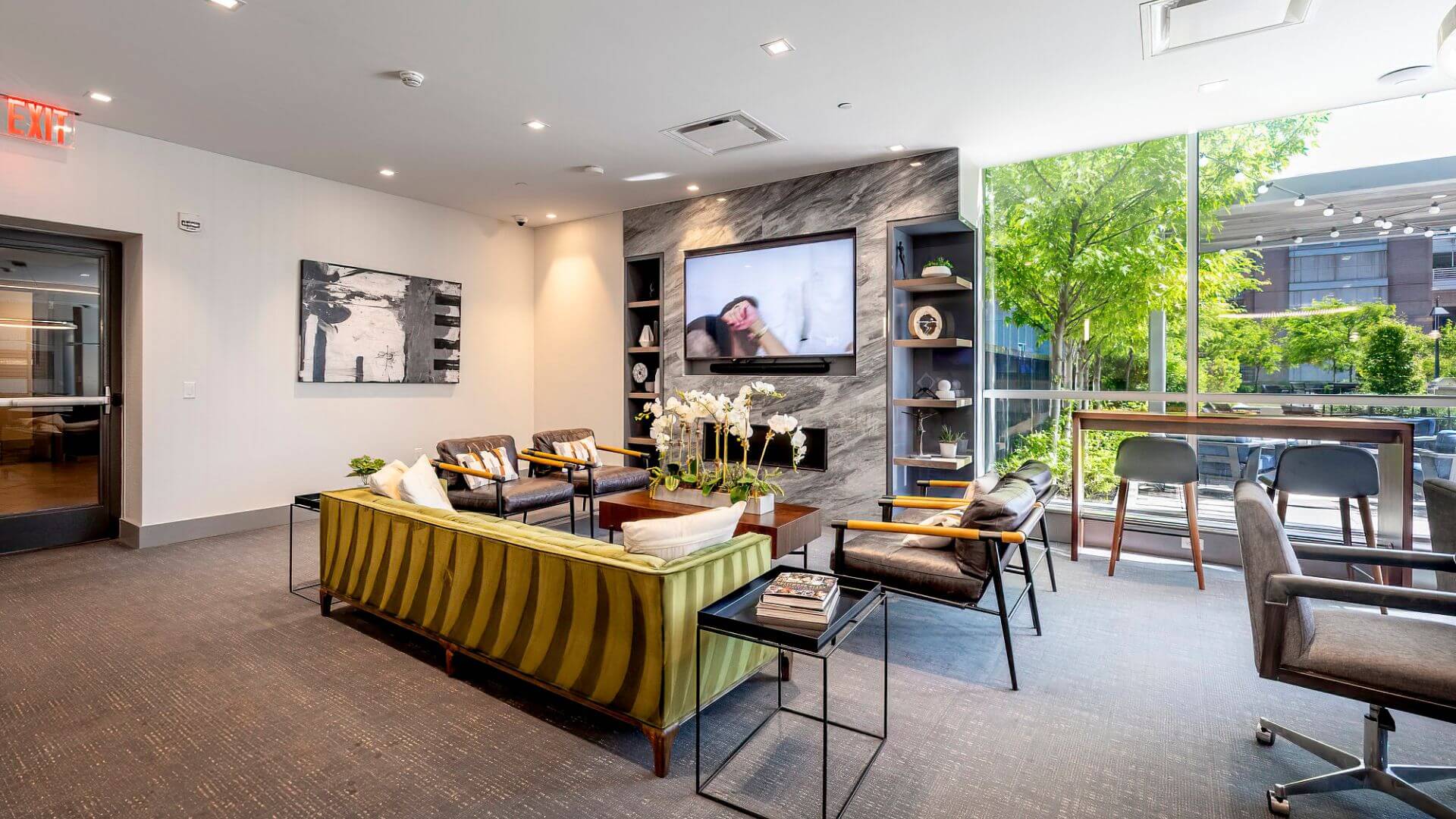Corporate housing isn’t just a place to crash—it’s a home away from home for people on the move.
Whether you’re a professional relocating to a new city, a consultant tackling a big project, or an intern starting your career, corporate housing offers the perfect blend of comfort, convenience, and practicality. Imagine yourself relaxing in a fully furnished apartment with a cozy living room, a stocked kitchen, and space to breathe—not a cramped hotel room or an unpredictable short-term rental.
As remote work and project-based jobs take off, more people are turning to corporate housing for long-term stays that feel less like “temporary” and more like “just right.”
In this article, we’ll uncover who uses corporate housing and why it’s become the go-to solution for so many different needs.
What is Corporate Housing?
Corporate housing refers to fully furnished rental accommodations, such as apartments, condos, or houses, that are available for short-term or extended stays.
These accommodations are designed to offer a comfortable, home-like environment for business travelers, relocating employees, project-based consultants, and other professionals who need temporary housing.
Unlike traditional hotels, corporate housing includes amenities such as fully equipped kitchens, in-unit laundry facilities, and separate living and sleeping areas, providing a more spacious and cost-effective alternative for extended stays.
This type of housing typically comes with flexible lease terms and is often located in convenient, business-friendly locations, making it an ideal solution for modern business travel needs.

Who Uses Corporate Housing?
Corporate housing caters to a diverse group of individuals and industries, each with their own unique needs.
According to The Corporate Housing Industry Report – 2018, relocation was the largest reason for using corporate housing in the US, with project/training as the second largest reason. These two groups account for over 54% of the market.
Here’s a closer look at who relies on these accommodations:
Relocating Employees
Moving to a new city for work can feel overwhelming, especially when you’re trying to find permanent housing while adjusting to a new job. Corporate housing bridges this gap by offering fully furnished accommodations with utilities and Wi-Fi included.
For example, a newly promoted manager relocating to Boston might need housing for a few months while securing a long-term home in the city. Corporate housing provides a stress-free solution, giving employees and their families time to settle into their new environment.
Project-Based Consultants
Consultants often work on long-term projects far from home, requiring accommodations that balance convenience and comfort. Corporate housing offers fully equipped apartments near project sites, saving consultants the time and cost of setting up their own living space.
Imagine a construction project manager overseeing a six-month build in Stamford, CT—they can stay close to the site while enjoying a home-like setting, with amenities like a full kitchen and high-speed internet to support both work and downtime.
Interns and Trainees
Interns and trainees often need short-term housing that aligns with their budget while offering opportunities for personal and professional growth. Corporate housing is ideal for seasonal programs, as it provides safe, affordable spaces often located near major business districts or company headquarters.
For instance, a marketing intern in New York City might stay in a corporate rental that not only cuts down on commuting time but also places them in a vibrant, networking-friendly neighborhood filled with like-minded professionals.
Traveling Nurses and Medical Professionals
Healthcare workers on assignment prioritize living spaces near hospitals or clinics to reduce commuting time and maximize rest. Corporate housing caters to this need by offering fully furnished units close to medical facilities.
Take a traveling nurse on a 12-week assignment in Hartford, CT—they can stay in a corporate apartment just minutes from their hospital, complete with amenities like a comfortable bed, quiet workspace, and a kitchen to prepare meals after long shifts.
Families Displaced by Emergencies
Natural disasters, fires, or home renovations can force families to leave their homes temporarily. Corporate housing provides a reliable, fully equipped environment to help them regain a sense of stability.
For example, a family in Massachusetts displaced by flood damage can move into a corporate rental that offers everything they need—from beds and kitchenware to proximity to their kids’ school—while their home undergoes repairs.
Government and Military Personnel
Government employees and military personnel often require secure housing near project locations or bases for short-term assignments. Corporate housing meets these needs by offering strategic locations and privacy.
A military contractor working on a temporary project in New Haven, CT, for instance, can rely on corporate housing to provide convenient access to their work site while maintaining a quiet, secure living environment.
Industries That Rely on Corporate Housing
- Healthcare: Traveling nurses, medical professionals, and patients requiring temporary housing near hospitals.
- Film and Entertainment: Actors, crew members, and production teams needing housing during shoots.
- Tech Industry: Employees on long-term assignments or attending training programs.
- Government and Military: Personnel deployed for temporary assignments or emergency responses.
Need a space that works as hard as you do? Discover Compass’ corporate housing solutions for comfort, convenience, and flexibility. Find Your Perfect Stay Now.

Benefits of Corporate Housing
1. Business Trips:
- Comfort and Space: More space and amenities than a typical hotel room, including separate living and working areas.
- Convenience: Proximity to business districts and transportation hubs, making it easier to commute to meetings and events.
2. Relocation:
- Temporary Home: Provides a comfortable, fully furnished home while searching for permanent housing.
- Flexibility: Short-term lease options that accommodate the uncertainty of relocation timelines.
3. Project Assignments:
- Cost-Effective: Often more economical than extended hotel stays, especially for long-term projects.
- Home-Like Amenities: Access to a full kitchen, laundry facilities, and living space, making extended stays more comfortable.
4. Internships and Training Programs:
- Safe and Stable: Provides a secure and reliable place to stay for the duration of the program.
- Community and Networking: Opportunities to stay in residential areas and potentially meet other interns or professionals.
5. Medical Treatments:
- Proximity to Hospitals: Often located near medical facilities for easy access to treatments and appointments.
- Comfort for Recovery: A peaceful, home-like environment that supports rest and recovery during and after treatment.
6. Home Renovations:
- Temporary Refuge: A convenient and comfortable place to stay while home improvements are underway.
- No Long-Term Commitment: Flexible leases mean homeowners can return to their newly renovated homes as soon as work is complete.
7. Vacation Stays:
- Home Away From Home: Provides a more personalized and comfortable stay than traditional hotels.
- Local Experience: Often located in residential neighborhoods, offering a more authentic local experience.
8. Displacement Due to Emergencies:
- Immediate Availability: Quick and easy access to fully furnished housing in times of need.
- Comfort and Stability: A safe and stable environment during a stressful period, providing essential amenities for daily living.
Corporate Housing vs. Hotels and Airbnbs
When it comes to temporary housing, business travelers often consider hotels, Airbnbs, or corporate housing. While each option has its pros and cons, corporate housing offers a distinct balance of space, cost-effectiveness, and consistency that makes it a standout choice for professionals.
More Space
Corporate housing provides significantly more room than a standard hotel room or most Airbnbs. With separate areas for living, working, and sleeping, it creates an environment that feels like home and supports a balanced lifestyle.
For instance, business travelers staying in corporate housing can set up a dedicated workspace without sacrificing comfort or relaxation.
Cost Savings for Longer Stays
While nightly rates for hotels or Airbnbs may seem comparable at first glance, the costs can quickly add up for longer stays.
Corporate housing typically offers better value for extended periods, with all-inclusive pricing that bundles utilities, Wi-Fi, and furnishings into a single payment. For companies covering employee housing, corporate rentals often prove to be the most cost-effective option.
Home-Like Amenities
Corporate housing is designed to feel like a home away from home. Fully equipped kitchens, in-unit laundry facilities, and spacious layouts mean tenants can cook meals, do laundry, and unwind just as they would in their own home. Hotels and Airbnbs often lack these features or charge extra for access to similar amenities.
Reliability
One of the biggest advantages of corporate housing is its reliability.
Unlike Airbnbs, where the quality and availability of amenities can vary widely, corporate housing offers a standardized experience. Business travelers know they’ll get clean, well-maintained accommodations with professional management support. Corporate housing also eliminates the risk of last-minute cancellations, which can be a common issue with Airbnbs.
| Feature | Corporate Housing | Hotels | Airbnbs |
|---|---|---|---|
| Cost | Lower for long-term stays | High for extended stays | Varies widely, less predictable |
| Space | Multiple rooms, larger layouts | Single room or suite | Depends on the listing |
| Amenities | Full kitchen, laundry, Wi-Fi included | Basic amenities, extra charges for some services | May or may not include full amenities |
| Flexibility | Tailored lease terms for longer stays | Typically less flexible | High flexibility but less reliable |
| Reliability | Consistent quality and management | Consistent but less personal | Highly variable |
Comparing Costs
When you’re evaluating accommodation options for extended stays, corporate housing often presents a cost-effective alternative to traditional housing options such as hotels and long-term leases.
Corporate housing typically offers all-inclusive rates that cover utilities, internet, and maintenance, which can significantly reduce the overall expense compared to the separate costs associated with traditional rentals.
Unlike hotels, which can be prohibitively expensive for long durations, corporate housing provides spacious, fully furnished living spaces at a lower per-night cost.
The absence of hefty security deposits and the flexibility of short-term leases make corporate housing financially advantageous, especially for individuals or companies needing temporary accommodations.
The added amenities of corporate housing, such as in-unit laundry and fully equipped kitchens, also contribute to cost savings by reducing the need for dining out and laundry services.
When you’re considering the total cost of stay, including hidden expenses and convenience factors, corporate housing often emerges as the more economical and practical choice for extended stays.
Looking for a home away from home? Explore Compass’ corporate housing solutions and find your perfect fit today.

